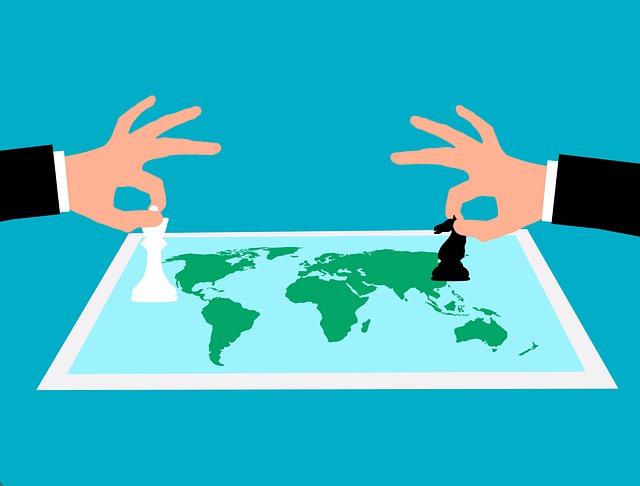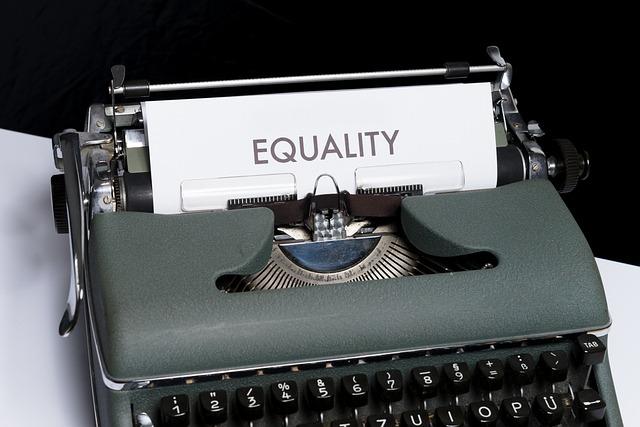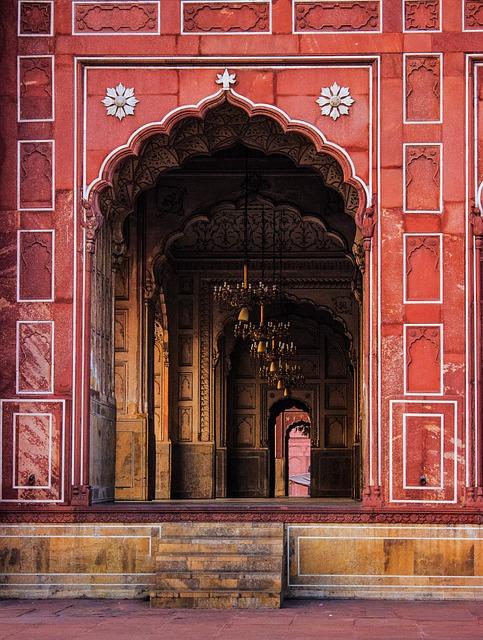In an era defined by rapid globalization and interdependence, the intricate tapestry of international relations weaves together nations, cultures, and ideologies in a complex interplay of diplomacy and power. At the heart of this global stage lies Pakistan, a country with a rich history and strategic significance that transcends its geographical borders. From its pivotal location at the crossroads of South Asia, Central Asia, and the Middle East to its dynamic relationships with major world powers and neighboring countries, Pakistan’s role in international relations is both influential and multifaceted. This article will explore the various dimensions of Pakistan’s engagement on the world stage, delving into its diplomatic strategies, economic partnerships, and the challenges it faces, while illuminating the contributions and contradictions that define its presence in the ever-evolving landscape of global politics. As we navigate this intricate web, we will gain a deeper understanding of how Pakistan is positioning itself in a world that is constantly in flux, seeking both stability and progress in an age of uncertainty.
Shaping Strategic Alliances: Pakistans Partnership Opportunities on the World Stage
As Pakistan seeks to enhance its global footprint, forming strategic alliances with diverse nations has become paramount. Opportunities abound in various sectors, including trade, infrastructure development, and technology transfer, enabling the country to leverage its geostrategic position. By engaging with regional powers and emerging economies, Pakistan can significantly bolster its economic prospects and foster sustainable development. Potential areas for collaboration include:
- Economic Partnerships: Joint ventures with countries looking to invest in South Asia.
- Energy Security: Collaborations on renewable energy projects to address energy deficits.
- Cultural Exchanges: Strengthening people-to-people connectivity through educational and cultural programs.
Moreover, positioning itself as a key player in international organizations can further enhance Pakistan’s outreach. The nation can capitalize on its membership in entities such as the Shanghai Cooperation Organization (SCO) and the South Asian Association for Regional Cooperation (SAARC). By actively participating in dialogue and initiatives within these platforms, Pakistan can influence regional security and economic policies. The following table outlines potential partners and their respective sectors where collaborations can be initiated:
| Partner Country | Sector | Potential Collaboration |
|---|---|---|
| China | Trade | China-Pakistan Economic Corridor (CPEC) |
| Turkey | Defense | Joint military exercises and technology transfer |
| Saudi Arabia | Energy | Investment in oil and gas sectors |
| United States | Technology | Partnerships in IT and innovation |

Balancing Act: Navigating Regional Tensions and Diplomatic Engagement
In a world increasingly defined by shifting alliances and geopolitical maneuvering, the ability to maintain stability within a region while engaging diplomatically on multiple fronts is essential. Pakistan finds itself at a crucial intersection of interests, balancing relationships with neighbors such as India and Afghanistan, while also cultivating ties with global powers like the United States and China. This delicate dance is characterized by diplomatic dialogue and strategic partnerships aimed at promoting regional stability and economic development. The challenges presented by longstanding territorial disputes, such as those in Kashmir, necessitate a nuanced approach that prioritizes peaceful negotiations over conflict escalation.
Effective diplomatic engagement requires embracing a multifaceted strategy that incorporates soft power initiatives alongside traditional statecraft. This includes fostering cultural exchanges, enhancing trade agreements, and participating in multinational forums to voice regional concerns. For instance, Pakistan’s involvement in organizations like the Shanghai Cooperation Organization (SCO) and the South Asian Association for Regional Cooperation (SAARC) exemplifies its commitment to collaborative dialogue. By prioritizing mutual respect and understanding, Pakistan aims to transform regional tensions into opportunities for partnership, thereby reinforcing its role as a pivotal player on the global stage.

Harnessing Economic Diplomacy: Leveraging Trade Relations for Global Influence
In the intricate web of global affairs, the art of economic diplomacy emerges as a crucial instrument for nations seeking to assert their presence on the international stage. By cultivating robust trade relations, countries can foster mutual benefits that extend beyond mere commerce, shaping geopolitical landscapes and securing influence. For Pakistan, this means leveraging its strategic geographic position, abundant resources, and burgeoning sectors, such as agriculture and textiles, to forge partnerships that resonate across continents. Through focused trade agreements and cooperative ventures, Pakistan can not only boost its own economy but also become a pivotal player in regional supply chains, ultimately enhancing its sovereignty and clout.
To further underline the significance of economic diplomacy, one must consider key components that underpin effective trade relations:
- Strategic Alliances: Building partnerships that support mutual interests enhances bargaining power on the global stage.
- Diverse Trade Agreements: Expanding trade ties with a variety of nations minimizes economic dependency on any single market.
- Investment in Infrastructure: Developing logistical capabilities and connectivity facilitates smoother trade operations.
- Promotion of Local Industries: Supporting domestic production helps to create a robust export base, amplifying national economic influence.
Moreover, as Pakistan navigates this landscape, it is essential to focus on measuring the impact of these trade relationships. Below is a concise overview of some recent trade partnerships that hold promise for the country:
| Country | Key Trade Product | Trade Agreement Date |
|---|---|---|
| China | Cotton & Spices | April 2020 |
| Turkey | Textiles | January 2021 |
| Saudi Arabia | Food Products | March 2022 |
These partnerships are vital for Pakistan, as they not only enhance economic ties but also contribute to a broader strategy of asserting its role in international discussions and decision-making processes.

Cultural Diplomacy in Action: Enhancing Pakistans Soft Power and Global Perception
In recent years, Pakistan has leveraged cultural diplomacy as a strategic tool to enhance its soft power and reshape global perceptions. By promoting its rich traditions and diverse cultural heritage, Pakistan seeks to foster greater understanding and collaboration with other nations. Key initiatives include:
- Arts and Festivals: Showcasing local artists through international festivals helps build bridges and break stereotypes.
- Educational Exchanges: Scholarships and partnerships with foreign institutions enable Pakistani scholars to share knowledge and culture.
- Tourism Promotion: Highlighting Pakistan’s stunning landscapes and historical sites to attract global tourists and investors.
Furthermore, engaging in dialogues centered on shared challenges, such as climate change and regional stability, demonstrates Pakistan’s commitment to global cooperation.
| Initiative | Impact |
|---|---|
| International Cultural Festivals | Enhanced visibility of Pakistan’s arts and culture |
| Academic Collaborations | Stronger ties with global educational institutions |
| Promotional Campaigns | Increased foreign tourism and investment |
Future Outlook
As we draw the curtains on our exploration of Pakistan’s multifaceted role in international relations, it becomes clear that navigating the global stage is not merely an act of diplomacy, but a complex interplay of history, culture, and strategic interests. From its geographical significance at the crossroads of South Asia and the Middle East to its evolving partnerships across various blocs, Pakistan stands as a pivotal player, replete with both challenges and opportunities.
In a world rife with shifting alliances and geopolitical tensions, Pakistan’s engagement in international affairs reflects a nuanced understanding of its past while striving towards a vision for the future. The path ahead may be fraught with obstacles, but the resilience of its diplomacy and the vibrancy of its civil society suggest that with careful navigation, Pakistan can assert itself as a constructive force on the global stage.
As we look to the horizon, the question remains: how will Pakistan continue to redefine its role amidst the ever-changing dynamics of international relations? The journey is ongoing, and as history unfolds, it will be the actions taken today that shape tomorrow’s narrative. Ultimately, the future of Pakistan in the realm of global diplomacy invites not just contemplation, but active engagement—an opportunity for collaboration, innovation, and mutual understanding that transcends borders.



